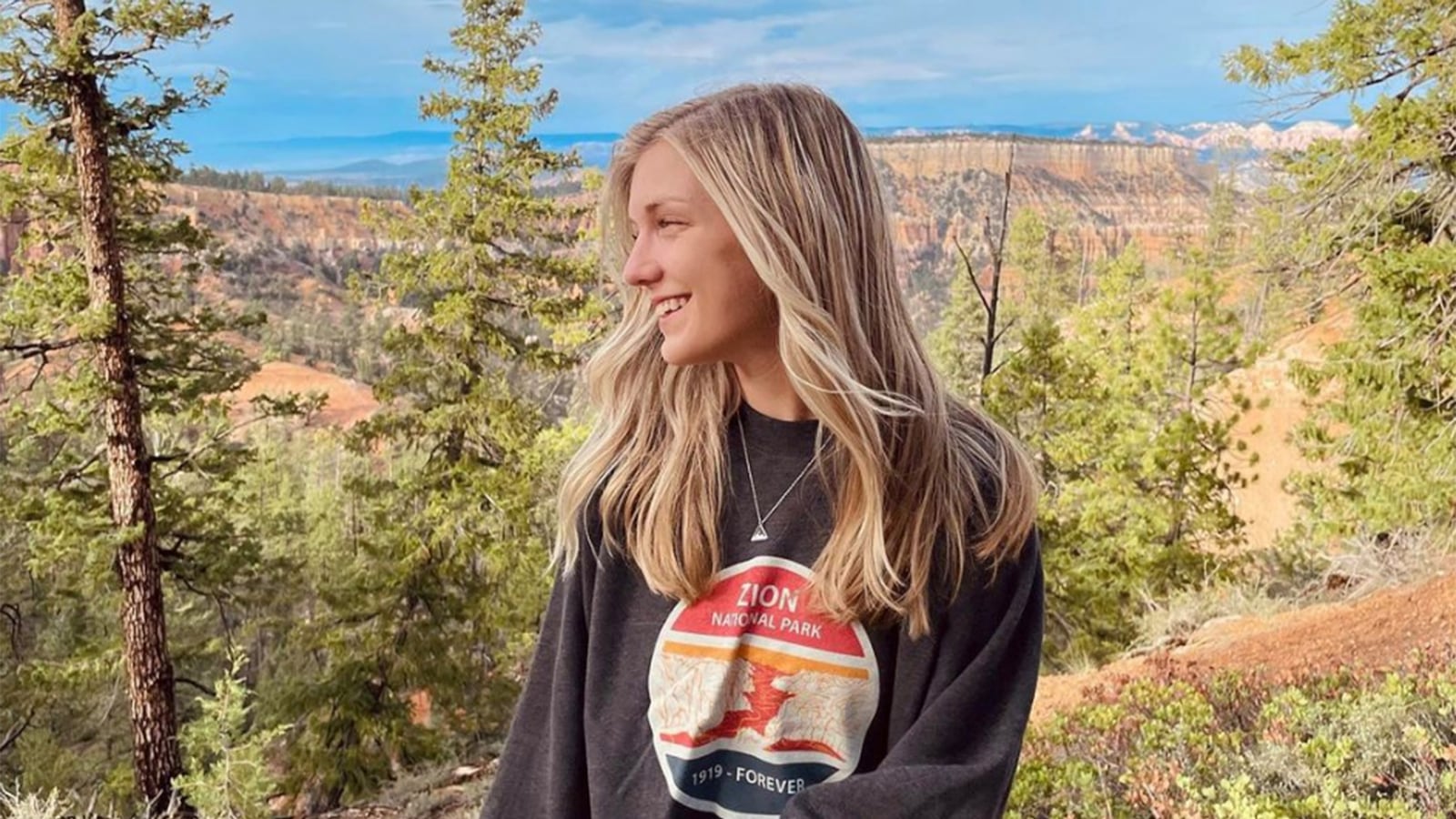Gabby Petito is one of the thousands of women who disappear each year, as nearly three women are murdered every day in America by their romantic partners, but unlike almost all of those women she has become front page news and, in her disappearance and possible death, a sort of human Rorschach test: a meme, a hashtag, a social media moment and movement.
Gabby Petito’s hashtag was searched 268 million times on TikTok. In the same area that Gabby Petito disappeared, 710 indigenous people— mostly girls—disappeared between the years of 2011 and 2020 but their stories didn’t lead news cycles, internet sleuths didn’t clog Instagram and Twitter trying to solve the mystery of their disappearances. Personally, I find it more than a little infuriating that those 710 people didn’t get the same attention as this white, model-thin 22-year-old who’d been documenting her travels through Utah’s national parks in a white van with her boyfriend on Instagram.
While her story has resonated on many levels—to some she is an abused girlfriend, to others the victim of a serial killer of the kind you might find in a cold case podcast series (two newlywed women were murdered in Moab at around the same time as Petito came to town), and many of us see proof in this story of how police often don’t take domestic violence as seriously as they should.
Body camera footage from August from officers responding to a domestic disturbance call shows a weeping Gabby sitting in the backseat of a police car, weeks before she would go missing. The man who called 911 said “he saw Petito slap (fiancé Brian) Laundrie during an argument before climbing into the vehicle through the driver-side window as if Brian had locked her out and she was trying to find a way in,” according to the police report. Petito was “crying uncontrollably.”
“At no point in my investigation did Gabrielle stop crying, breathing heavily, or compose a sentence without needing to wipe away tears, wipe her nose, or rub her knees with her hands,” officer Daniel Robbins wrote.
But the police wanted to make sure Laundrie wasn’t the victim of “battered boyfriend syndrome," so they took him to a hotel and made the couple promise to sleep in separate locations for the night. Weeks later, she disappeared.
“Gabby Petito’s life might have had an incredibly different ending if the police offices who pulled them over on August 12th were at all familiar with what domestic violence actually looks like❤️” one woman wrote on Twitter, while sharing a post about how “If you or someone you know has experienced this type of abuse… you’ll know that when you’re with an abuser you’ll do anything to defend them in the moment because the alternative could be far worse.”

FBI agents begin to take away evidence from the family home of Brian Laundrie.
Octavio Jones/GettyAs I write this, we have few solid facts. We know human remains found near Grand Teton National Park may be Petito’s. We know the FBI is searching her fiancé’s family’s home as part of a “court-authorized search warrant." We know that Laundrie has been named a person of interest but has refused to cooperate with the search for his fiancé despite the pleading of Petito’s family, and we know that he is now in the wind.
But while much remains unknown, many of us know what we feel. On Facebook a woman wrote, “We all know a Gabby Petito or we’ve been her. Stuck in an abusive relationship with a man who continues to make us feel crazy or look crazy.” There are thousands of comments like that across social media—and at least as many internet sleuths trying to solve the case ahead of the FBI and other legal authorities. That doesn’t always end well, as we’ve seen again and again.
However this story turns out, I hope that people following it begin to take “ordinary” abuse of women seriously, and the disappearances of women that happen all too often. And that law enforcement and civilians alike stop and seriously consider how much more interest there is in solving crimes when they involve attractive white women.


